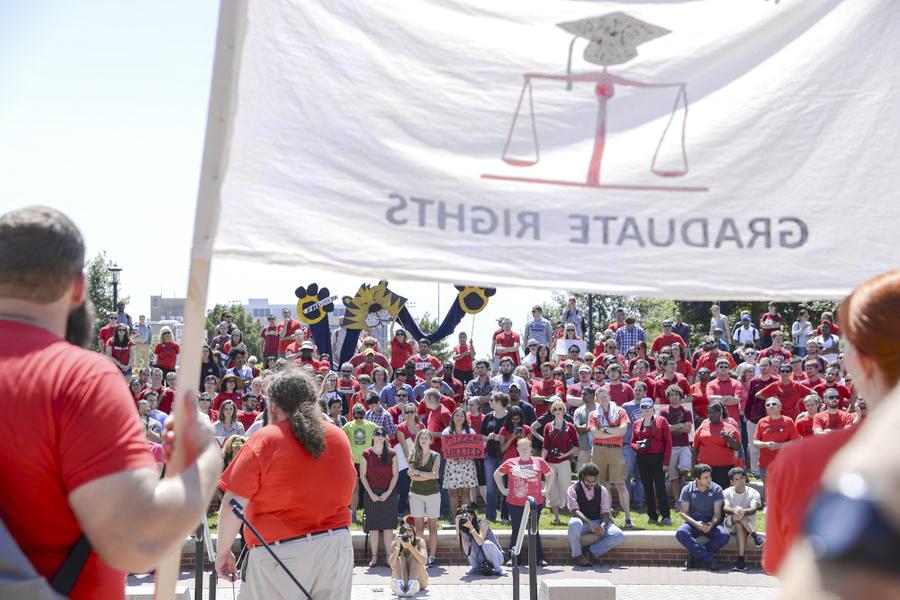The Coalition of Graduate Workers, a branch of the Forum on Graduate Rights, is in the process of unionization after affiliating with the Missouri National Education Association and the National Education Association.
The coalition’s goal is to organize graduate students to give them power to improve their working conditions through collective bargaining.
Eric Scott, co-chairman of the coalition, said he has two visions for the unionization of graduate student employees: to secure collective bargaining rights and create a good legal contract with protections and benefits, and to create a place where graduate students come together to work and advocate for themselves.
A collective bargaining agreement secures dignified working conditions, benefits and protections for all student workers. Collective bargaining is the process by which wages, hours, rules and working conditions are negotiated and agreed upon by a union with an employer for all the employees collectively whom it represents.
The Coalition believes this campaign will “create lasting gains for graduate student workers and those who depend on them at MU,” according to a news release dated Oct. 1.
“The bottom line is that our working conditions are undergraduate working conditions,” coalition co-chairman Connor Lewis said. “We want to make sure that undergraduates have access to world-class education.”
Graduate students are mentors and teachers to undergraduates, Scott said.
“If we aren’t able to devote full attention to working, it lessens our ability to provide high quality education to undergraduates,” he said.
The Missouri constitution is unique in stating “that employees shall have the right to organize and to bargain collectively through representatives of their own choosing,” per Article 1, Section 29.
The coalition recently began collecting signatures to petition for an election on unionization, said Lewis. The coalition has organizers in every department asking for signatures.
Lewis estimates there are around 2,800 graduate student workers at MU. Although the coalition only needs 1,401 signatures to receive the election, Lewis said they are aiming for 2,000.
The coalition is trying to stay flexible with their timeline but “our hope is to make sure we have an election this academic year,” Lewis said.
Scott said the coalition is basing some of its vision off other public universities of the same size in the Midwest.
“Our biggest inspiration is the University of Iowa,” Scott said. “They have been extremely successful in their ways of running and structuring their union.”
Iowa’s union, the Campaign to Organize Graduate Students has been around since spring of 1998 and strives to provide “better healthcare, fair salaries, wavers and a grievance procedure for graduate employees,” according to [its website](http://cogs.org/).
(COGS) is involved and invested in keeping itself running. Everyone is active and engaged in the campus rather than just paying dues and voting, Scott said. This is the MU coalition’s hope for its future union.
Lewis said he believes the graduate students’ rights movement has a place with the other social justice movements on campus lately.
“We have a role to play in making sure we have a more equitable campus environment,” Lewis said.
Scott agreed, and is making sure minority graduate students find a home and a voice within the Forum on Graduate Rights and the coalition.
“It’s different in some ways because we’re talking primarily about working conditions and the status of employees,” Scott said. “It’s important for movements to work together to be active and engaged in fighting for social justice on campus.”
However, Scott said some people are hesitant about the idea of a union on campus due to its connotation of retaliation against the university, but he assures there are legal protections against this.
“Every graduate student worker has constitutional rights to organize according to the Missouri constitution,” Scott said. “I hope everyone takes advantage of this right.”














